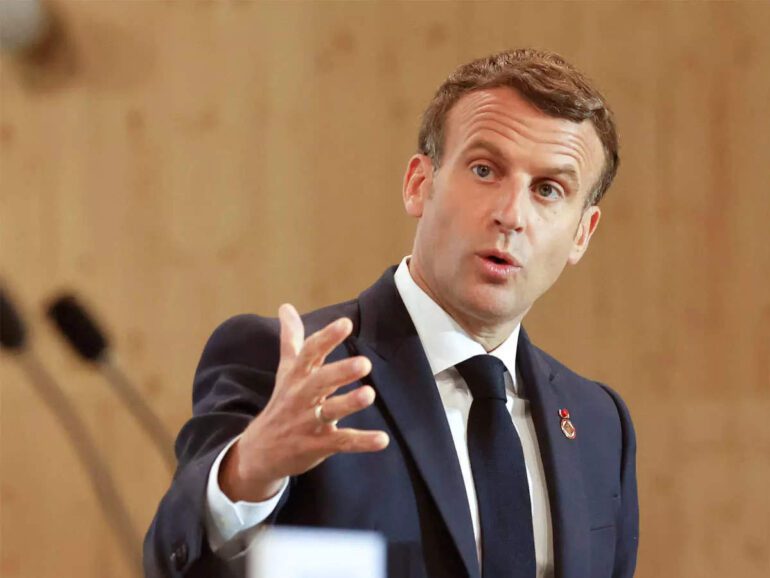- Emmanuel Macron’s vision for France as an AI leader underscores a strategic push towards tech innovation.
- Mistral AI’s emergence symbolizes progress, despite valuation disparities compared to US counterparts.
- French AI firms garnered substantial funding, positioning Paris as a burgeoning tech hub in Europe.
- Snap elections have cast a shadow of uncertainty over France’s AI sector, with potential impacts on talent pipelines and taxation.
- Current polling dynamics reflect a polarized electorate, posing challenges for Macron’s centrist agenda.
- Industry leaders express concerns over policy shifts affecting immigration, taxation, and investor confidence.
- Despite challenges, optimism persists regarding France’s potential to maintain its attractiveness for tech investments.
Main AI News:
In a bid to elevate France to the forefront of the global artificial intelligence (AI) landscape, President Emmanuel Macron has long championed the vision of fostering homegrown tech giants. His ambition to integrate France into the vanguard of AI innovation became unmistakably clear in 2018 when he declared, “The AI disruption is coming, and I want to be part of it.” Macron subsequently launched a spirited campaign aimed at transforming France into a dynamic startup nation, nurturing enterprises capable of rivalling the established giants from the US and China.
The fruition of Macron’s aspirations materialized with the emergence of Arthur Mensch, a visionary entrepreneur with a distinctive persona characterized by bushy eyebrows, and the founding of Mistral AI in April 2023. Mensch’s brainchild, Mistral’s ChatGPT counterpart known as Le Chat, made an impactful debut in February 2024, igniting fervent anticipation within the tech community. Prompt comparisons between Mensch and his San Francisco counterpart, Sam Altman, both youthful CEOs backed by Microsoft, underscored Mistral’s immediate market impact. Despite a valuation of $6 billion—significantly lower than OpenAI’s $80 billion—Mistral’s success validated Macron’s vision of France as an AI powerhouse in the making.
The contagious optimism surrounding France’s AI sector was further substantiated by substantial funding inflows. French generative AI firms amassed a staggering $2.3 billion over the past decade, surpassing their European counterparts, as reported by VC firm Accel in June. Within Paris’s vibrant startup ecosystem, a prevailing sentiment of unstoppable momentum buoyed hopes of sustained industry leadership.
However, the AI industry’s optimism encountered a sudden jolt when Macron announced snap elections, triggering apprehensions about potential setbacks. Campaign pledges threatening talent pipelines and proposing heightened tax burdens cast a shadow over the sector’s hard-earned gains.
As French voters prepare to cast their ballots in the upcoming elections, polls indicate a contentious landscape dominated by anti-immigration sentiments from the far right and anti-capitalist platforms of the left, challenging Macron’s centrist coalition. Roxanne Varza, director of Parisian startup hub Station F, voiced concerns over potential regression, lamenting the dilemma of choosing between unappealing alternatives in a pivotal election.
The specter of political uncertainty casts a pall over the future of French AI and its leading players—Mistral, Kyutai, Hugging Face, and H—who face an uncertain trajectory amid widespread voter disapproval of the status quo. Varza highlighted Marine Le Pen’s National Rally as a threat to international talent mobility crucial for the industry’s competitiveness. Meanwhile, the left-wing New Popular Front’s tax proposals evoke memories of past economic challenges, including the divisive 2012 “les pigeons” movement opposing tax hikes.
Maya Noël, CEO of France Digitale, expressed anxieties not only about attracting global talent but also about maintaining investor confidence amidst political flux. Despite recent investments by tech giants like Google and Microsoft in French AI infrastructure, uncertainties loom large, challenging France’s appeal as a tech investment hub.
While Macron’s presidential tenure remains secure until 2027, the parliamentary outcomes could redefine France’s political landscape, potentially introducing governance challenges reminiscent of past “cohabitation” periods. Mistral, a beneficiary of Macron’s tech-friendly policies, refrained from public statements regarding electoral implications, choosing instead to echo cautious sentiments expressed by co-founder Cédric O.
Gilles Babinet, a member of the government’s AI committee, noted concerns among international coders contemplating exits from France amid impending policy shifts. Reflecting on broader industry sentiments, Babinet cautioned against underestimating the potential impact of divergent political ideologies on France’s tech ecosystem.
Despite prevailing uncertainties, industry stakeholders remain cautiously optimistic, drawing parallels to past instances of resilience amidst political upheavals. Stanislas Polu, founder of Dust and an OpenAI alumnus, emphasized the industry’s robust momentum in weathering adversities, while acknowledging potential financial challenges ahead.
As France navigates turbulent electoral waters, the tech community braces for pivotal outcomes that could shape the future of AI innovation in the country, striving for continuity amid evolving political landscapes.
Conclusion:
The intersection of Macron’s ambitious AI agenda with the current political uncertainties poses significant challenges for France’s AI market. While the country has made notable strides in nurturing homegrown AI innovations, the looming electoral outcomes and proposed policy shifts threaten to disrupt momentum. The resilience of the French tech sector will be tested as it navigates through this critical phase, requiring adaptive strategies to sustain growth and attractiveness amidst evolving political dynamics.

